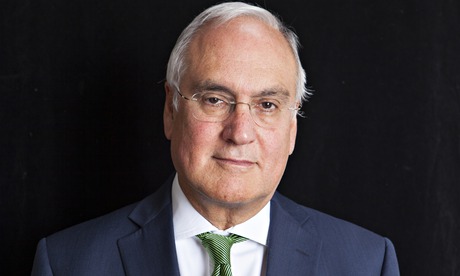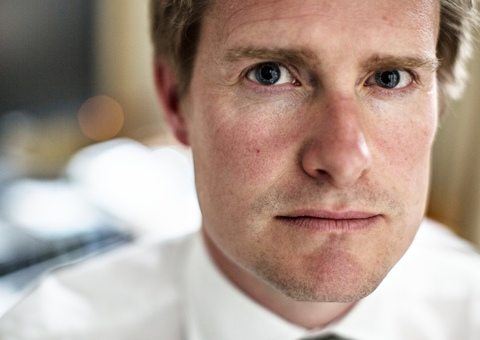Sir Michael Wilshaw, the Ofsted chief inspector, has hit out at a key plank of the government’s education policy, arguing that struggling schools are no better off in academy chains than under local authority control.
He is calling for an end to “sterile” debates over school structures and argues that “a new name and a breathless new motto” was all some schools received after exchanging local authority control for being governed by a chain of academies, the policy encouraged by the former education secretary Michael Gove.
Wilshaw said there could be little difference in school improvement under an academy chain or a council. Imagining the position of a head teacher of a newly converted academy, he said: “In fact, the neglect you suffered at the hands of your old local authority is indistinguishable from the neglect you endure from your new trust.”
Speaking at the launch of Ofsted’s annual report card on the state of England’s schools, Wilshaw’s scepticism about multi-academy trusts being a recipe for successfully turning around failing schools puts him at odds with Department for Education (DfE) policy of using academy chains to reinvigorate local authority schools which have had poor results.
“Schools marooned in partnerships without effective networks find it hard to improve and just as hard to sustain improvement,” Wilshaw said. “It doesn’t matter if they belong to a local authority or a multi-academy trust. If oversight is poor and expectations low, the problems are uniformly similar and depressingly predictable: a lack of strategy to help the weakest schools and an absence of challenge to the best.”
Alice Sullivan, a professor of education at UCL’s Institute of Education, said Wilshaw was right to say that structures alone made little difference. “There is no robust evidence that any particular school structure or type – such as academies, free schools, faith schools – is beneficial for improving the performance of poor pupils,” Sullivan said.
Although Wilshaw did not single out any academy chains by name, a recent Ofsted inspection of schools belonging to AET, the country’s largest chain, found that half of its schools were failing to deliver a good education.
In response to the speech, Nicky Morgan, the education secretary, said: “We should not lose sight of the incredible improvements we have already seen under this government. There are a million more children in good or outstanding schools and a 60% increase in the proportion of young people studying the core academic GCSEs that employers want. We now have 100,000 more six-year-olds able to read, thanks to our focus on phonics.
“There is more to do, of course, but with more children now being taught in good or outstanding schools than ever before, everyone involved with the education system should be incredibly proud of the progress that has been made in the past few years.”
The Ofsted report focused on what Wilshaw argued was the relative success of primary schools in England compared with secondary schools, where results in the past year were said to have stalled because of continuing poor behaviour and weak leadership.
“There is a worrying lack of scholarship permeating the culture of too many schools,” the report claims.
“Inspectors found too many instances of pupils gossiping, calling out without permission, using their mobiles, being slow to start work or follow instructions, or failing to bring the right books or equipment to class.”
But the report’s claims were attacked by unions and teachers’ representatives, who argued that Ofsted’s comparisons between primary and secondary school performance were unfair and misleading.
Brian Lightman, general secretary of the Association of School and College Leaders, which represents the bulk of headteachers criticised by Ofsted, rejected Wilshaw’s suggestion that progress in secondaries had stalled.
“Ofsted has failed to recognise that overall attainment by 16-year-olds is effectively capped by the current GCSE awarding process. As student attainment is the critical element in the Ofsted grading, it is no surprise that the proportion of schools graded good or better is relatively unchanged,” he said.
“While we know there remains room for improvement, we must recognise the journey that secondary schools have been on. In this period of massive reform, when Ofsted inspection has become even more rigorous, secondary schools should be congratulated for their achievements. There is no complacency in our secondary schools.”
Wilshaw made a veiled dig in his speech at the government’s push to move teacher training away from university courses and towards its School Direct programme, where trainee teachers are taught in approved schools with high ratings. It has proved to be less popular with applicants, who prefer university-based courses.
“Good and outstanding schools with the opportunity to cherry-pick the best trainers may further exacerbate the stark differences in local and regional performance. The nation must avoid a polarised education system where good schools get better at the expense of weaker schools,” Wilshaw said.
Tristram Hunt, the shadow education secretary, said the remarks were an indictment of the government’s failure to deliver high quality teaching, which was leading to a crisis in schools.
“Under a future Labour government, all classroom teachers will have to become qualified teachers and be required to update their subject knowledge and teaching practices as a condition of remaining in the classroom. Labour will end the watering down of teaching standards that is harming our children’s life chances,” Hunt said.
The DfE defended the government’s record on recruiting the best teachers, saying: “We now have more teachers in England’s classrooms than ever before, with record levels of top graduates entering the profession – one in six now holds a first-class degree.”












